
- Campuses :
- Twin Cities
- Crookston
- Duluth
- Morris
- Rochester
- Other Locations

http://www.umn.edu/urelate
612-624-6868
Researcher Biographies
 Bruce Alexander, Ph.D., M.S.
Bruce Alexander, Ph.D., M.S.
Dr. Alexander is a professor in the Division of Environmental Health Sciences at the University of Minnesota School of Public Health. Dr. Alexander is an occupational and environmental epidemiologist with expertise and research interests relating to health effects due to chemical and physical hazards encountered in the environment. He has directed studies of occupational cancer, reproductive health, injury and exposure assessment, including several occupational cohort studies of industrial workers, including airplane manufacturing workers, phosphorous production workers, and employees of fluorochemcial production facilities. He is currently leading a study of respiratory health related to asbestos exposure from asbestos contaminated vermiculite.
He received his master's degree in environmental health from Colorado State University in Fort Collins, Colo., and his Ph.D. in epidemiology from the University of Washington, Seattle.
Contact: balex@umn.edu
Alan P. Bender D.V.M., Ph.D.
Dr. Bender is the Section Manager of the Chronic Disease and Epidemiology Section at the Minnesota Department of Health. Dr. Bender has worked for more than 25 years in the field of chronic disease surveillance. He developed the Minnesota Cancer Surveillance System (MCSS) that has been in operation for 20 years. He also was responsible for developing the Occupational Respiratory Disease Information System (ORDIS) that identified the mesothelioma risk in taconite miners before it was defunded in 2002. Dr. Bender has been instrumental in developing analytic software to assist in interpreting the inferences available from the surveillance data. Dr. Bender is a widely quoted authority on interpretation of cancer cluster statistics and he has been the principal investigator of many occupational studies at the Department of Health.
Dr. Bender received his M.S. degree in mathematics and D.V.M. from the University of Minnesota and his Ph.D. in epidemiology from the Ohio State University. He is also an adjunct faculty member in the University of Minnesota's School of Public Health.
Contact: bende020@umn.edu
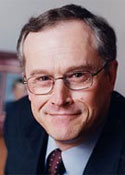 John R. Finnegan, Jr., Ph.D.
John R. Finnegan, Jr., Ph.D.
Dr. Finnegan is Professor and Dean of the University of Minnesota School of Public Health. He oversees the University's and the School's leadership in directing the research into taconite worker health issues and coordinating the partnership. In addition to his role as Dean, Dr. Finnegan also serves as assistant vice president for public health for the University, a community of more than 100,000 students, faculty and staff members operating in numerous locations throughout the state.
A journalist by training, Dr. Finnegan has been a faculty member of the School of Public Health for nearly 30 years. Most of his research and teaching has been around the relationship between public health and the mass media.
Dr. Finnegan is a native Minnesotan, and received his master's and doctorate degrees at the University of Minnesota.
Contact: sphdean@umn.edu
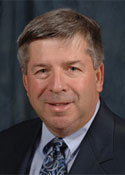 Donald R. Fosnacht, Ph.D., M.S.
Donald R. Fosnacht, Ph.D., M.S.
Dr. Fosnacht is the Director of the Center for Applied Research and Technology Development based at the University of Minnesota Duluth's Natural Resources Research Institute. He oversees the research and development program of over 65 researchers dedicated to fostering economic development of Minnesota natural resources in an environmentally acceptable manner. In addition, he serves as Principal Investigator on projects related to value added iron creation, aggregate utilization, bioenergy generation, and environmental remediation using mineral processing techniques.
Dr. Fosnacht received his Ph. D. from the University of Missouri–Rolla in Metallurgical Engineering and was granted an honorary professional degree in the same field by the University of Missouri based on his research contributions to the field of metallurgy and mineral processing. He received his Master of Science from Columbia University in Mineral Engineering. He has worked in the metals and mining industry in various capacities concerning technology development and resource utilization. His work has included particle technology characterization, process evaluation, process design, and manufacturing efficiency development. In addition to various professional memberships,
Dr. Fosnacht has served on the Governor's Committee on Minnesota Mining's Future and the Tax Policy Advisory Committee. He currently is a member of the State of Minnesota Minerals Diversification Committee. Dr. Fosnacht has authored or co-authored numerous publications and presentations. Dr. Fosnacht will manage the work on characterization of airborne dust from taconite processing both within the plant environment and as experienced in the communities surrounding the mining plants.
Contact: dfosnach@umn.edu
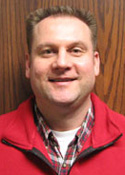 George Hudak, Ph.D.
George Hudak, Ph.D.
George Hudak is a Senior Research Associate in the Economic Geology Group, and is the Group Leader for the Particle and Materials Characterization Group within the Minerals Division of CARTD at the University of Minnesota Duluth-based Natural Resources Research Institute (NRRI). He is also the Associate Director of the Precambrian Research Center.
Prior to arriving at NRRI in 2009, Dr. Hudak spent eleven years as an Assistant/Associate Professor of Geology at the University of Wisconsin Oshkosh, where he focused his government- and minerals industry-funded research on volcanic- and structurally-associated precious and base metal mineral deposits within Precambrian terranes across North America, including the Vermilion District of northeastern Minnesota.
Dr. Hudak is currently an Adjunct Assistant Professor in the Department of Geological Sciences at the University of Minnesota Duluth. He currently sits on the Board of Directors for the Institute on Lake Superior Geology, and is a Mentor for the Society of Economic Geologists. He is a Registered Professional Geologist in Minnesota and Wisconsin, and holds a Prospector’s License in Ontario.
Contact: ghudak@d.umn.edu
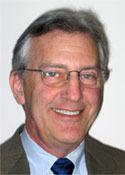 Jeffrey Mandel, M.D., M.P.H.
Jeffrey Mandel, M.D., M.P.H.
Dr. Mandel is an occupational physician and epidemiologist. He is an associate professor in the Division of Environmental Health Sciences at the University of Minnesota School of Public Health. He is board certified in internal medicine and occupational medicine and is a Fellow in the American College of Occupational and Environmental Medicine. Prior to joining the faculty of the School of Public Health, Dr. Mandel served as Director of Occupational Medicine at 3M. He is familiar with the health issues of asbestos workers having served as an advisory committee member for the screening of vermiculite/asbestos-exposed people in Northeast Minneapolis and a task force member for the screening of former Conwed workers with asbestos exposure, both in conjunction with the Minnesota Department of Health. His consulting and research interests have focused on health issues linked to occupational and environmental exposures, including asbestos, benzene, and other environmental pollutants.
A native of Grand Forks, N.D., Mandel received his medical degree at the Loyola University School of Medicine in Chicago and his master of public health degree from the University of Minnesota.
Contact: mand0125@umn.edu
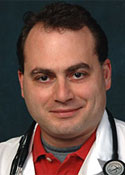 David Perlman, M.D.
David Perlman, M.D.
Dr. Perlman received his B.A. in biology from Carleton College in Northfield, Minnesota in 1989. After college he worked as a research assistant in the lab of Dr. Radovan Zak at the University of Chicago, working mainly on projects relating to the recovery from injury of skeletal and cardiac muscle. He subsequently returned to Minnesota to attend medical school and received his M.D. from the University of Minnesota in 1996. After completing his residency in Internal Medicine at Hennepin County Medical Center, he entered the Pulmonary and Critical Care Medicine Fellowship program at the U of Minnesota. After the first year of clinical training, Dr. Perlman joined Dr. Peter Bitterman's lab. Dr. Perlman is now a junior faculty member in the Division of Pulmonary, Allergy and Critical Care Medicine at the University and he continues to work in Dr. Bitterman's lab.
His current research centers mainly on the translational control of apoptosis and how it applies to the clinical problem of pulmonary fibrosis. The main goal of his project is the identification of molecules critical to the pathobiology of pulmonary fibrosis that may be amenable to therapeutic intervention.
Contact: perlm003@umn.edu
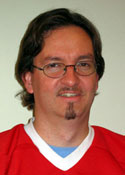 Peter Raynor, Ph.D., M.S.
Peter Raynor, Ph.D., M.S.
Dr. Raynor is an associate professor in the Division of Environmental Health Sciences at the University of Minnesota School of Public Health. Dr. Raynor's research expertise includes exposure control, exposure assessment, industrial hygiene, air filtration, ventilation, personal protective equipment, and respiratory protection, and airborne biological agents.
Dr. Raynor is currently working on a method to measure more accurately the particle exposure in taconite mines on the Iron Range. The goal is to gain better understanding of dust exposure levels taconite workers are currently experiencing and assess the effectiveness of existing protective measures.
Dr. Raynor received his master's degree and Ph.D. in environmental sciences and engineering from the University of North Carolina, at Chapel Hill.
Contact: praynor@umn.edu
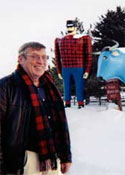 William Toscano, Ph.D.
William Toscano, Ph.D.
Dr. Toscano is head of the Division of Environmental Health Sciences where he is also a professor. The goal of his research is to understand mechanisms by which human health is affected by the environment at the molecular and cellular level. Dr. Toscano teaches courses in environmental health, toxicology, public health genomics, and molecular approaches to risk assessment. He held faculty appointments at Harvard and Tulane Universities before coming to the University of Minnesota as a professor in 1999.
Last year Dr. Toscano was elected fellow of the American Association for the Advancement of Science. He currently serves as chair of the environmental and occupational health council of the Association of Schools of Public Health. He is the US Regional editor of the journal Environmental Toxicology and serves on the editorial board of numerous other peer-reviewed environmental health journals.
Dr. Toscano received his Ph.D. in biochemistry from the University of Illinois, Urbana, and his master's degree in analytical chemistry from Indiana University of Pennsylvania.
Contact: tosca001@umn.edu
Allan N. Williams, M.P.H., Ph.D.
Dr. Williams is an environmental and occupational epidemiologist in the Chronic Disease and Environmental Epidemiology Section at the Minnesota Department of Health. Dr. Williams is also the supervisor for the MDH Center for Occupational Health and Safety program. For over 20 years, he has worked on issues relating to environmental and occupational cancer, work-related respiratory diseases, and work-related injuries. He has had a key role in previous efforts to investigate health outcomes among Minnesota's taconite miners and former Conwed workers.
Dr. Williams received an MA degree in Biology from Indiana University and an MPH degree in Environmental Health and Epidemiology from the University of Minnesota, and his PhD in Environmental and Occupational Health from the University of Minnesota. He is also an adjunct faculty member at the University of Minnesota School of Public Heath.
Contact: will0242@umn.edu
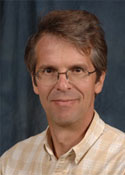 Lawrence Zanko, M.S.
Lawrence Zanko, M.S.
Mr. Zanko is a research fellow in the Economic Geology Group at the Natural Resources Research Institute (NRRI), based at the University of Minnesota Duluth. He has worked in the minerals field and has conducted geological, mineral resource and minerals industry-related applied research for most of his 26-year career. Since his start with NRRI in 1988, he has worked on a broad spectrum of research projects and regularly interacts and collaborates with public and private sector professionals and academicians in the minerals, transportation, and environmental fields, inside and outside Minnesota.
A large part of Mr. Zanko's work in recent years has focused on the NRRI's efforts to expand the use of taconite mining byproducts for construction purposes, and has collaborated with colleagues on a NRRI research program which began in early 2006, titled “Research, Development and Marketing of Minnesota's Iron Range Aggregate Materials for Midwest and National Transportation Applications.”
Mr. Zanko is a graduate of the University of Minnesota–Twin Cities, where he received bachelor degrees in Geological Engineering and Microbiology, and a Masters degree in Geological Engineering.
Contact: lzanko@nrri.umn.edu
